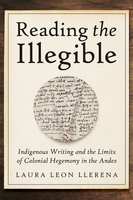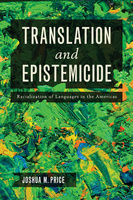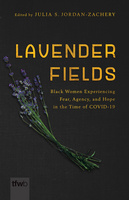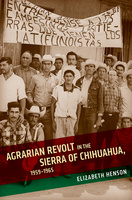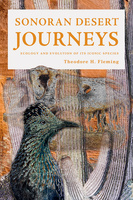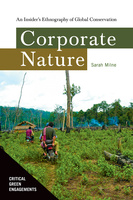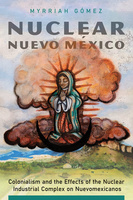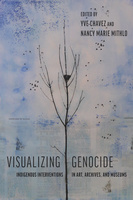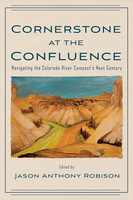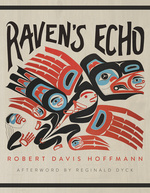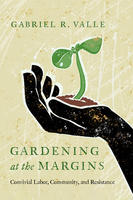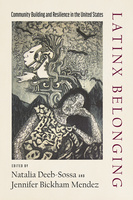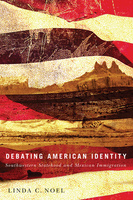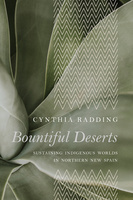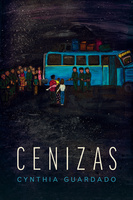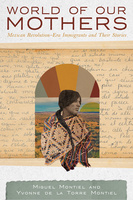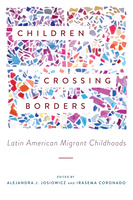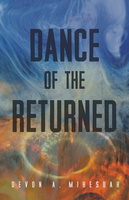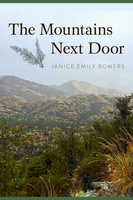The University of Arizona Press is the premier publisher of academic, regional, and literary works in the state of Arizona. They disseminate ideas and knowledge of lasting value that enrich understanding, inspire curiosity, and enlighten readers. They advance the University of Arizona’s mission by connecting scholarship and creative expression to readers worldwide.
Reading the Illegible
Indigenous Writing and the Limits of Colonial Hegemony in the Andes
Translation and Epistemicide
Racialization of Languages in the Americas
From the early colonial period to the War on Terror, translation practices have facilitated colonialism and resulted in epistemicide, or the destruction of Indigenous and subaltern knowledge. This book discusses translation-as-epistemicide in the Americas and providing accounts of decolonial methods of translation.
Lavender Fields
Black Women Experiencing Fear, Agency, and Hope in the Time of COVID-19
Lavender Fields uses autoethnography to explore how Black girls and women are living with and through COVID-19. It centers their pain, joys, and imaginations for a more just future as we confront all the inequalities that COVID-19 exposes.
Agrarian Revolt in the Sierra of Chihuahua, 1959–1965
Sonoran Desert Journeys
Ecology and Evolution of Its Iconic Species
This book explores the evolution and natural history of iconic animals and plants of the northern Sonoran Desert through the eyes of a curious naturalist.
Corporate Nature
An Insider's Ethnography of Global Conservation
Drawing from personal experience, Sarah Milne looks inside the black box of mainstream conservation NGOs and finds that corporate behavior and technical thinking dominate global efforts to save nature, opening the door to unethical conduct and failure on the ground.
Nuclear Nuevo México
Colonialism and the Effects of the Nuclear Industrial Complex on Nuevomexicanos
Nuclear Nuevo México recovers the voices and stories that have been lost or ignored in the telling of U.S. nuclear history. By recuperating these narratives, Myrriah Gómez tells a new story of New Mexico, one in which the nuclear history is not separate from the collective colonial history of Nuevo México but instead demonstrates how earlier eras of settler colonialism laid the foundation for nuclear colonialism in New Mexico.
Visualizing Genocide
Indigenous Interventions in Art, Archives, and Museums
Visualizing Genocide engages the often sparse and biased discourses of genocidal violence against Indigenous communities documented in exhibits, archives, and museums. Essayists and artists from a range of disciplines identify how Native knowledge can be effectively incorporated into memory spaces.
Cornerstone at the Confluence
Navigating the Colorado River Compact's Next Century
Guarded by Two Jaguars
A Catholic Parish Divided by Language and Faith
This ethnography examines the role of language and embodied behaviors in producing a congregational split in a Catholic parish serving Guatemala’s Q’eqchi’ Maya people. Drawing on a range of methods from linguistic and cultural anthropology, author Eric Hoenes del Pinal examines how the introduction of the Catholic Charismatic Renewal movement in the parish produced a series of debates between parishioners that illustrate the fundamentally polyvocal nature of Catholic Christianity.
Raven's Echo
Gardening at the Margins
Convivial Labor, Community, and Resistance
This book explores how a group of home gardeners grow food in the Santa Clara Valley to transform their social relationships, heal from past traumas, and improve their health, communities, and environments.
Latinx Belonging
Community Building and Resilience in the United States
Accessible and engaging, Latinx Belonging underscores and highlights Latinxs’ continued presence and contributions to everyday life in the United States as they both carve out and defend their place in society.
Debating American Identity
Southwestern Statehood and Mexican Immigration
Bountiful Deserts
Sustaining Indigenous Worlds in Northern New Spain
Set in the arid lands of northwestern Mexico, this book foregrounds the knowledge of Indigenous peoples who harvested the desert as bountiful in its material resources and sacred spaces. Author Cynthia Radding uses the tools of history, anthropology, geography, and ecology to re-create the means of defending Indigenous worlds through colonial encounters, the formation of mixed societies, and the direct conflicts over forests, grasslands, streams, and coastal estuaries that sustained wildlife, horticulture, foraging, hunting, fishing, and—after European contact—livestock and extractive industries. She returns in each chapter to the spiritual power of nature and the enduring cultural significance of the worlds that Indigenous communities created and defended.
Cenizas
Poems
Cenizas offers an arresting portrait of a Salvadoran family whose lives were shaped by tumultuous global politics. Cynthia Guardado’s poems argue that the Salvadoran Civil War permanently altered the Salvadoran people’s reality by forcing them to become refugees who continue to leave their homeland, even decades after the war.
World of Our Mothers
Mexican Revolution–Era Immigrants and Their Stories
Children Crossing Borders
Latin American Migrant Childhoods
Dance of the Returned
The disappearance of a young Choctaw leads Detective Monique Blue Hawk to investigate a little-known ceremonial dance. As she traces the steps of the missing man, she discovers that the seemingly innocuous Renewal Dance is not what it appears to be. After Monique embarks on a journey that she never thought possible, she learns that the past and future can converge to offer endless possibilities for the present. She must also accept her own destiny of violence and peacekeeping.


